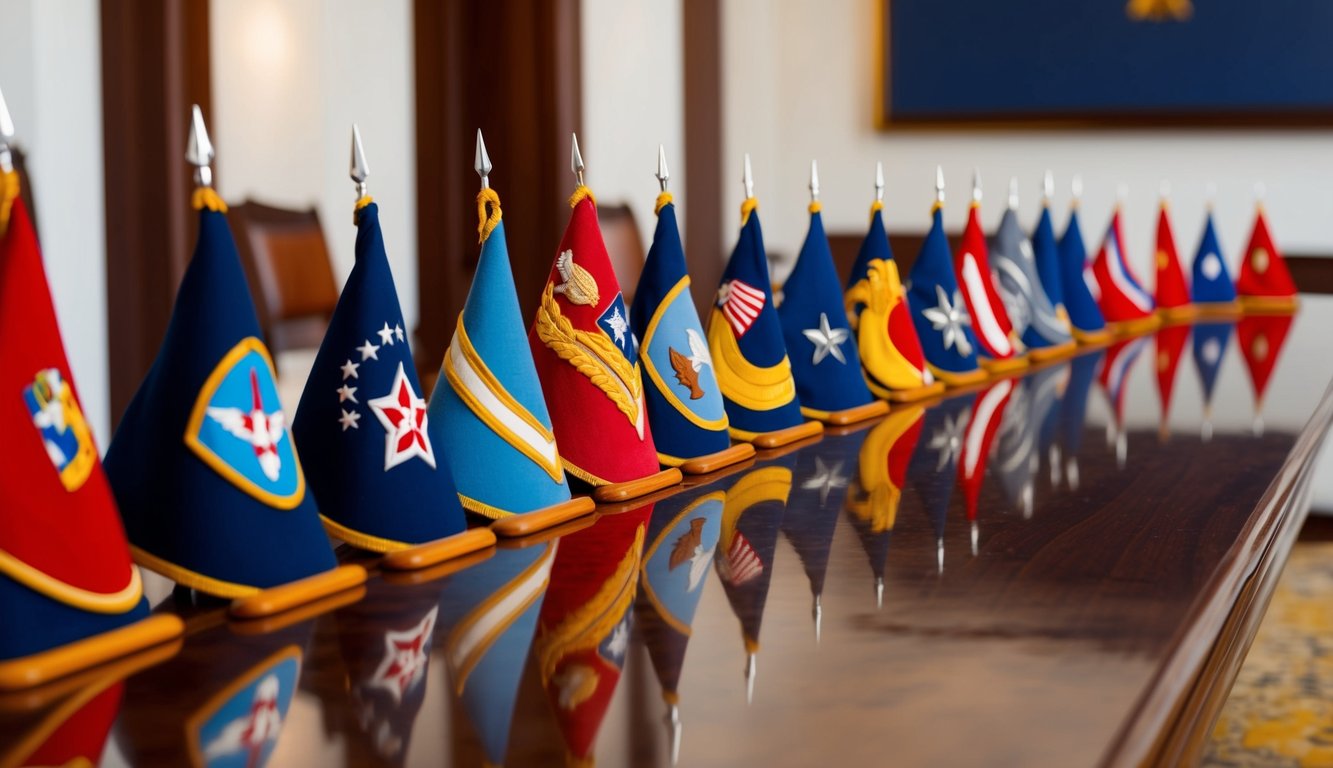Army values are fundamental to military culture, influencing the behavior and integrity of soldiers both during operations and in their daily lives.
The seven core principles—Loyalty, Duty, Respect, Selfless Service, Honor, Integrity, and Personal Courage—serve as guiding tenets for every decision a soldier makes.
By adopting these values, service members enhance their effectiveness on duty and cultivate strong personal morals.
As you delve into the Army values, you’ll see their manifestation in everyday actions and life-long commitments.
From the initial phases of basic training to advanced leadership roles, these values are ingrained, reinforced, and manifested throughout a soldier’s journey.
They act as a moral guide, assisting in navigating the intricate situations and ethical challenges that emerge, both within the military and in civilian life.
Key Takeaways
- Army values are essential in shaping character and directing behavior in all facets of military service.
- The seven core values are ingrained and reiterated throughout a soldier’s career.
- These values extend beyond military life, shaping personal and professional interactions.
Understanding Army Values
The Army Values lay the groundwork for military service, cementing character and guiding behavior.
These values unite soldiers and define the essence of service.
Summary and Significance
The seven Army Values can be remembered by the acronym LDRSHIP: Loyalty, Duty, Respect, Selfless Service, Honor, Integrity, and Personal Courage.
They serve as a moral guide, assisting soldiers in navigating complex situations and making ethical choices.
Loyalty entails staying committed to your unit, the Army, and the nation.
Duty emphasizes the importance of fulfilling obligations and completing tasks responsibly.
Respect involves treating others with dignity while appreciating diverse perspectives.
Selfless Service encourages the prioritization of others’ needs above your own.
Honor encourages adherence to Army standards.
Integrity ensures alignment between actions and words, while Personal Courage inspires resilience in the face of fear and adversity, both physical and moral.
Historical Development
The contemporary Army Values trace their lineage back to the Revolutionary War, where early American soldiers embodied similar principles, even if they weren’t formally recognized.
In the 19th century, the phrase “duty, honor, country” emerged as a guiding ethos for military service, establishing early foundations for a more detailed set of values.
The modern version of the Army Values was officially adopted in 1994, designed to clearly outline expected conduct and character for soldiers.
Since then, they have been deeply embedded in Army culture and training.
Throughout your military career, you will encounter these values, from basic training to leadership courses, reinforcing them to help shape you into a well-rounded soldier and leader.
The Seven Core Army Values
The U.S. Army stands on the seven core values that direct soldiers’ behavior and decision-making.
These values establish the Army’s identity and what it means to serve as a soldier, forming the foundation of military service and leadership.
Loyalty
Loyalty is about honoring your commitments.
As a soldier, your allegiance is to the U.S. Constitution, the Army, your unit, and fellow soldiers.
This commitment means standing strong with your team through challenges.
You support the mission even in difficult times.
Loyalty fosters trust within your unit and creates a solid bond essential for operating under pressure.
Remember, loyalty is reciprocal.
Your leaders and comrades should support you as well, creating a cooperative force.
Duty
Duty encompasses fulfilling your responsibilities as a soldier.
It signifies doing what is necessary, when it’s needed, to the best of your ability.
You are accountable for your actions and tasks, which includes punctuality, completing assignments, and adhering to instructions from superiors.
Duty goes beyond compliance; it implies initiative and exceeding expectations when appropriate.
You are expected to be reliable and trustworthy in all scenarios.
Respect
Respect is about treating others as they deserve to be treated, acknowledging the diverse backgrounds, experiences, and viewpoints of fellow soldiers.
You demonstrate respect by listening, engaging courteously, and considering others’ opinions, whether they are peers or in higher ranks.
Respect also includes self-care and maintaining high personal conduct standards, setting a positive example for others.
Selfless Service
Selfless Service focuses on prioritizing the needs of the nation, Army, and your comrades before your own, emphasizing sacrifices for the common good.
You may find yourself making personal sacrifices, such as working long hours or missed events, reflecting your commitment to the country.
This value encourages collective thinking, promoting teamwork and unit goals over individual desires.
Honor
Honor involves adhering to all Army values, consistently doing what is legally and morally right, even without oversight.
Building honor involves honesty in both words and actions, owning up to mistakes, and being accountable for your decisions.
It includes acknowledging the sacrifices of past service members and upholding Army traditions while aspiring to be deserving of your uniform.
Integrity
Integrity is characterized by honesty and strong moral principles, forming the cornerstone of trust in the Army.
You exhibit integrity by speaking truthfully, even when difficult, and following through on commitments without compromising standards.
Integrity signifies consistency in words and actions, earning reliability from fellow soldiers and leaders to fulfill ethical standards every time.
Personal Courage
Personal courage extends beyond battlefield bravery; it also involves standing up for what is right, even in adverse circumstances.
You show physical courage by confronting danger or hardship resolutely, whether in combat or during demanding training exercises.
Moral courage is equally vital, requiring you to make hard choices rooted in your values, regardless of potential adverse consequences for yourself.
Embedding Values through Training
The U.S. Army instills its core values through comprehensive training programs at every stage of a soldier’s career.
These initiatives focus on character building, reinforcing ethical standards, and promoting professionalism.
Basic Training
From the first day of Basic Combat Training, you are immersed in the Army Values.
Drill sergeants will emphasize loyalty, duty, respect, selfless service, honor, integrity, and personal courage in all your activities.
You will engage in ethics training and practical scenarios to apply these values in realistic situations.
Cooperative exercises will help you grasp the significance of trust and teamwork.
The Warrior Ethos is also vital, reinforcing the Army’s commitment to not leave any fallen comrade behind and always prioritize the mission.
Professional Military Education
As your career progresses, Professional Military Education (PME) courses continue emphasizing Army Values and ethical decision-making.
These courses include:
- Advanced Individual Training
- Noncommissioned Officer Education System
- Officer Education System
During PME, you will analyze ethical dilemmas and leadership challenges.
Group discussions will facilitate exploration of applying Army Values in nuanced scenarios.
The Center for the Army Profession and Ethic (CAPE) offers extensive resources and training materials supporting these educational efforts.
Leader Development Programs
The Army’s leader development programs significantly focus on character growth and ethical leadership.
As a prospective leader, you will engage in mentorship programs, 360-degree feedback evaluations, and self-reflection tasks.
These programs prioritize:
- Moral courage in decision-making
- Skills in ethical reasoning
- Creating a positive command environment
You will learn to lead by example, embodying Army Values in all your choices and actions.
The Army’s Leadership Requirements Model illustrates character as a fundamental trait of outstanding leaders.
These initiatives will help you cultivate the expertise necessary to foster an ethical culture within your unit and uphold the Army’s professional standards.
Values in Action
Army values are not mere concepts; they are embodied in the actions of soldiers daily.
From acts of heroism on the battlefield to community service, these foundational principles inform decision-making and behavior in numerous contexts.
Case Studies
There are numerous accounts of soldiers illustrating Army values under challenging conditions.
Notably, Staff Sergeant Salvatore Giunta risked his life to save wounded comrades under enemy fire in Afghanistan, embodying loyalty, duty, and personal courage.
Similarly, Captain Florent Groberg tackled a suicide bomber to safeguard his fellow soldiers.
This timely action epitomized selfless service and integrity.
Such instances are not isolated; every day, soldiers reinforce values through myriad acts of kindness, ethical decisions, and unwavering dedication to their duties.
Medal of Honor Recipients
Medal of Honor recipients exemplify Army values in action, demonstrating extraordinary bravery often at significant personal risk.
Staff Sergeant David Bellavia cleared enemy-held buildings in Iraq, saving his platoon, showcasing personal courage and selfless service.
Master Sergeant Matthew Williams risked his life repeatedly under enemy fire to rescue injured teammates in Afghanistan, exemplifying loyalty and duty amid extreme peril.
These individuals represent the highest military ideals.
Their stories motivate others and illuminate the real-world implications of living by Army values.
Values Campaign Plan
The Army Values Campaign Plan aims to reinforce these principles organization-wide, evident in training sessions, leadership education, and everyday operations.
Key initiatives include:
- Embedding values discussions within all levels of professional military education
- Facilitating opportunities for soldiers to discuss and share experiences related to Army values
- Recognizing individuals and units exemplifying these principles
This campaign emphasizes that values are not just rules but essential components of the Army profession.
By embodying these values, you contribute to a stronger and more effective force.
Army Values and Leadership
Army values underpin leadership within the military, shaping decision-making, character, and trust within units.
These principles are vital for addressing challenges and achieving the Army’s mission.
Role of Leaders
As an Army leader, it is your responsibility to embody and instill core values in your team.
Your conduct establishes the standard for your unit’s behavior.
You must consistently demonstrate loyalty to the Constitution, superiors, and soldiers.
Duty calls for you to fulfill obligations and complete tasks faithfully.
Respect entails treating all individuals with dignity and fostering an environment of inclusivity.
Selfless service requires prioritizing the needs of the nation, Army, and your subordinates.
Honor compels you to uphold all Army values at all times.
Integrity is critical – your actions and declarations must align.
Personal courage is needed to confront moral and physical challenges with determination.
Character and Trust
Your character as a leader is grounded in Army values, forming the foundation of trust within your unit.
Soldiers look to you for direction and exemplary behavior.
Consistent adherence to ethical standards fosters confidence in your leadership.
Trust is built through everyday actions.
Decisions aligning with Army values reinforce your integrity, which becomes crucial during high-pressure scenarios requiring prompt, coordinated action.
Be transparent in your decision-making process.
Acknowledge mistakes and learn from them.
Such vulnerability can strengthen team connections.
Decision Making in Adversity
In difficult circumstances, Army values provide your compass.
Always refer to these principles when faced with challenging choices, thereby navigating ethical dilemmas and maintaining your moral compass.
When under pressure, you might be tempted to cut corners.
Resist that urge.
Upholding Army values, particularly in adversity, fortifies your unit’s resolve and unity.
Engage in scenario-based decision-making training.
This prepares you for real-world problems.
Encourage open dialogues regarding ethical dilemmas s within your team, which enhances critical thinking skills and reinforces values-based leadership.
Living the Army Values
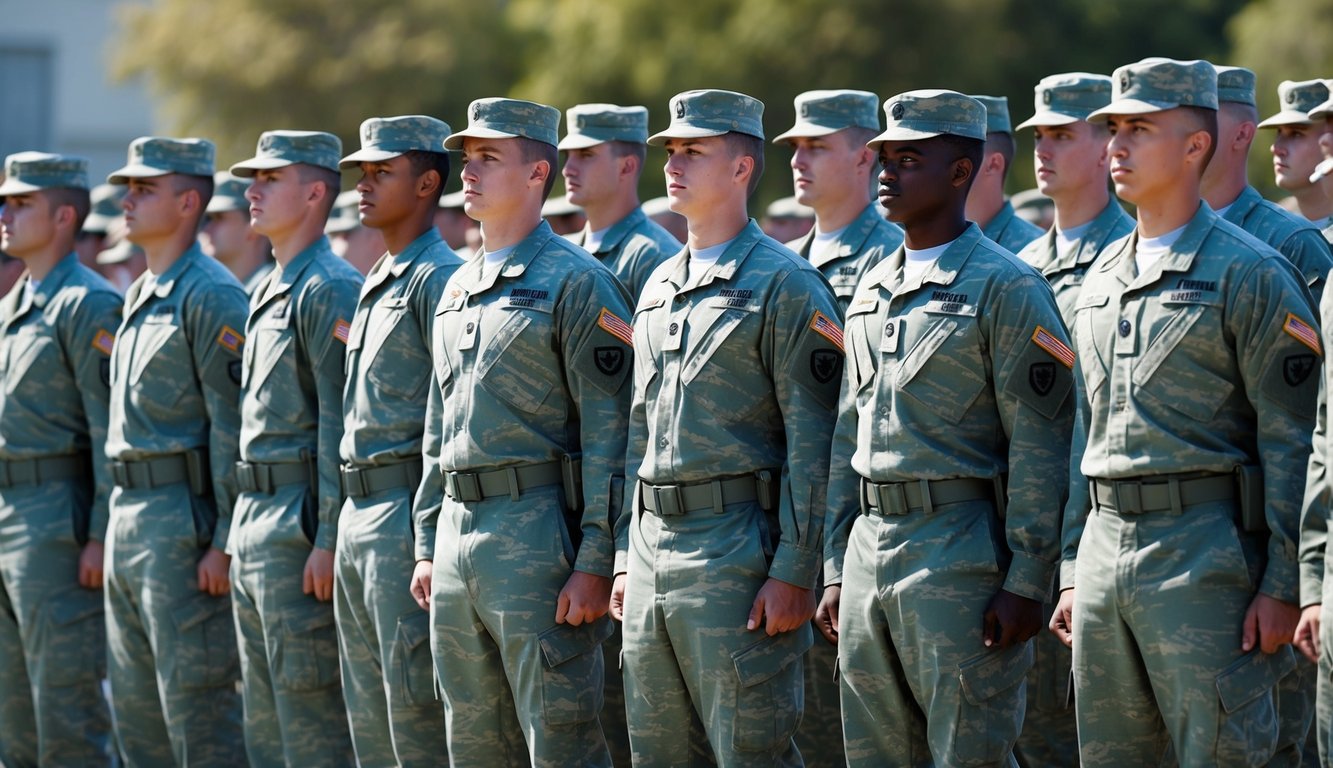
The Army Values influence every facet of a soldier’s life and service.
It is imperative to embody these principles in daily actions and decisions, both in and out of uniform.
They form the cornerstone of Army culture and affect how you interact with peers, superiors, and the civilian community.
Practicing Values Daily
You express Army Values through your everyday choices and behaviors.
When confronted with ethical dilemmas, these values serve as your guide.
For instance, integrity entails maintaining honesty in all interactions, even when unsupervised.
Loyalty means advocating for your fellow soldiers and upholding the mission at all costs.
You embody respect by treating others with dignity, irrespective of their rank or background.
Selfless service involves placing the needs of the nation and your unit before your own.
Personal courage is about standing firm for what’s right in everyday life, not just in combat scenarios.
Effects on a Soldier’s Life
Living according to Army Values shapes your character and perspective on life.
They instill a profound sense of duty and purpose that transcends military service, guiding decisions in personal relationships, finances, and career aspirations.
You cultivate resilience and mental fortitude.
When confronted with challenges, you draw strength from your commitment to honor and integrity.
Trust becomes essential in your interactions with others, as you learn to depend on fellow soldiers while earning their trust in return.
These values significantly influence your leadership style.
As you climb the ranks, you are expected to model these principles and motivate others to do likewise.
Impact on Army Culture
The Army Values create a unified ethical framework binding soldiers from diverse backgrounds and careers.
They set clear behavior and performance expectations, enhancing discipline and cohesion within units.
By upholding these standards, you contribute to a culture of excellence.
When soldiers consistently live by the values, the Army’s reputation and effectiveness are boosted.
Doing so cultivates public trust and support for the military’s objectives.
These principles shape institutional decision-making in the Army.
From training methodologies to operational strategies, the values inform policies and procedures, nurturing an environment where soldiers can succeed and reach their full potential in service of the nation.
Values Beyond the Battlefield
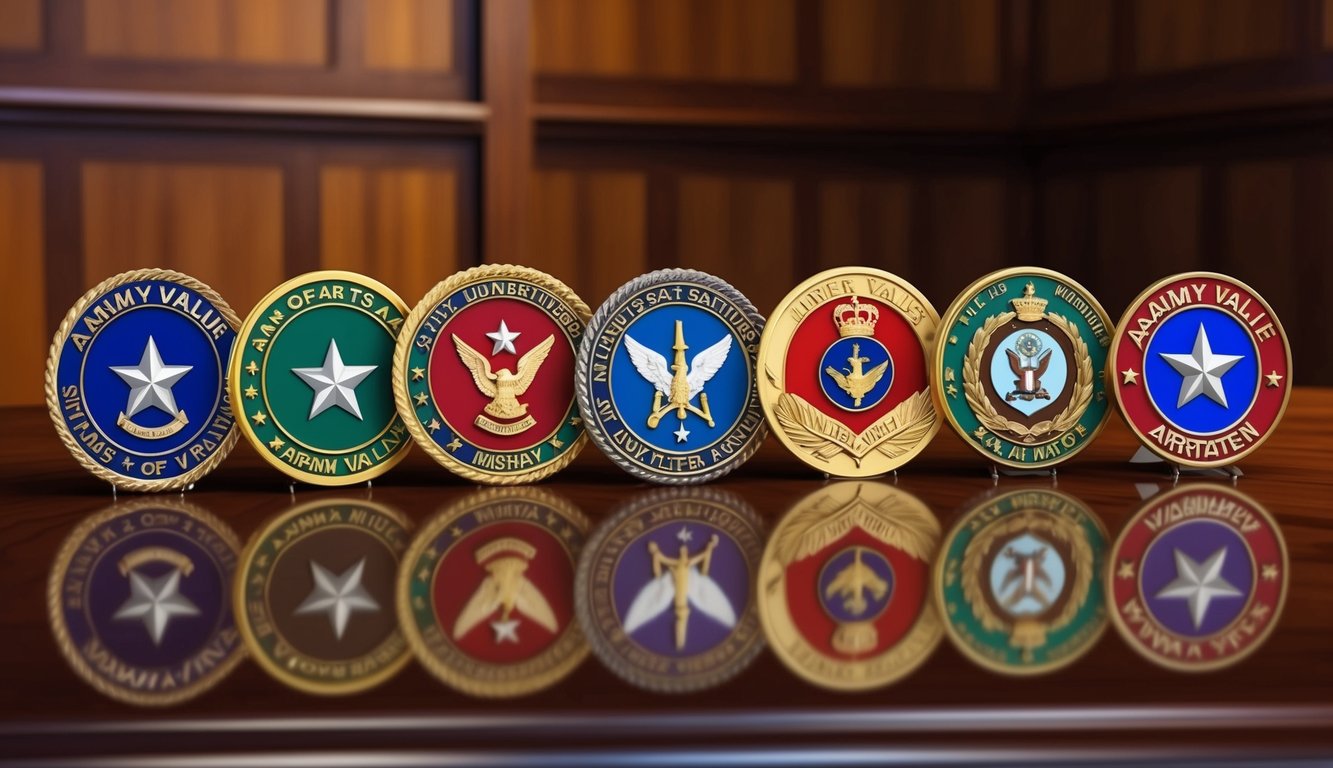
Army values influence soldier conduct in both military and civilian life.
These principles guide interactions, personal choices, and ethical decision-making in complex situations away from the battlefield.
Community Engagement
As a soldier, there are numerous opportunities for community engagement.
Participating in volunteer activities at schools, community cleanups, or youth mentorship allows you to demonstrate Army values in civilian contexts.
Your commitment to service is evident in these efforts.
Consider organizing initiatives like food drives or assisting in disaster response efforts.
Such actions reflect your dedication to the welfare of those around you.
By positively interacting with the community, you effectively serve as an ambassador for the Army’s values and mission.
Bear in mind that your behavior influences the perception of the entire military.
Treat community members with respect and kindness, fostering trust and support for the Armed Forces.
Personal Responsibilities
Even off duty, high standards apply.
Responsible financial management exemplifies discipline and integrity.
Ensure timely bill payments and avoid excessive debt.
Maintain physical fitness and a professional appearance as a reflection of Army values in your personal life.
Serve as a role model for friends and family.
Continuously pursue education and personal growth.
Engage in hobbies that align with Army values, showcasing your commitment to self-improvement and lifelong learning.
Ethical Challenges
Outside of combat, you may confront moral challenges.
In such instances, rely on Army values for guidance.
Reflect on the consequences of your choices for both individuals and the Army’s reputation.
If you witness wrongdoing, voice your concerns.
Upholding integrity may call for difficult discussions with peers or superiors.
Trust your principles and act rightly, even when uncomfortable.
Seek wisdom from chaplains or ethical advisors when facing complex situations, as they can provide valuable insights into applying Army values to civilian life.
Your dedication to these moral principles fortifies the Army’s ethical foundation.
Historical Context and Evolution
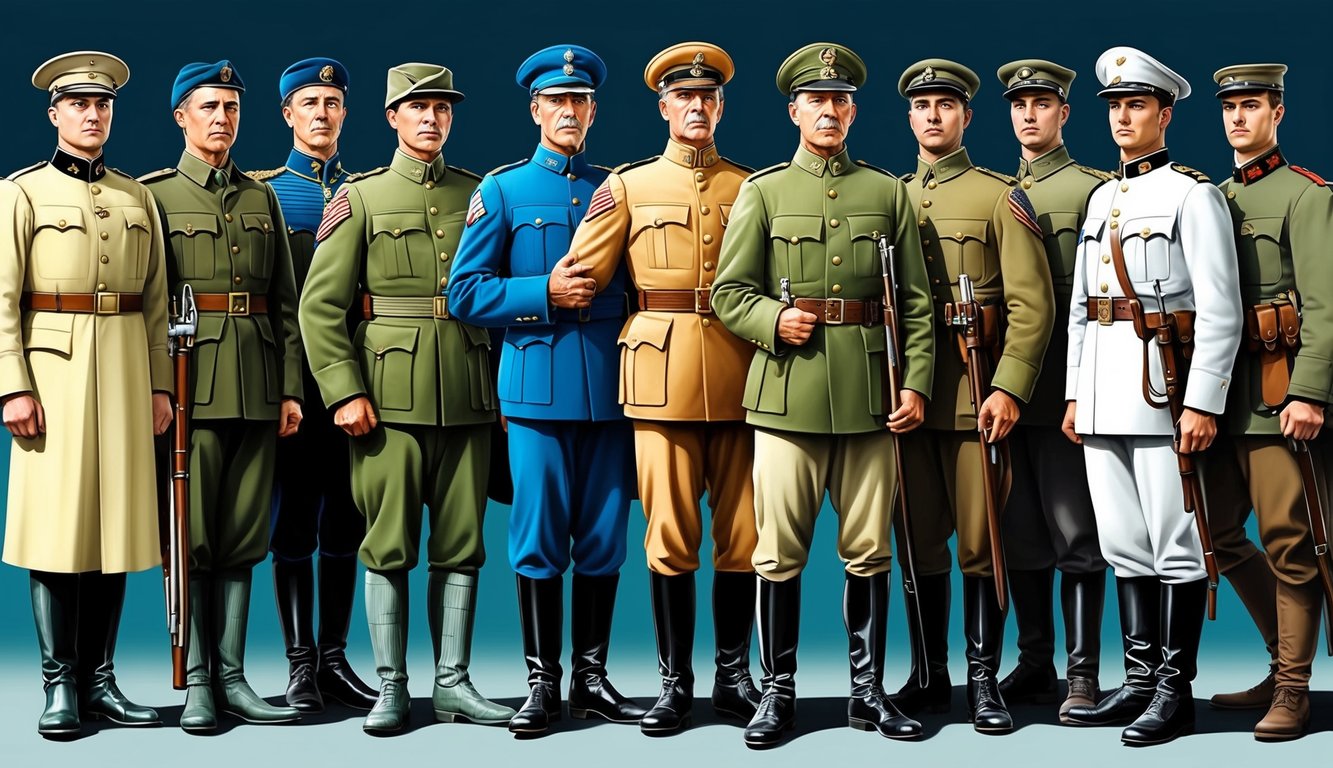
Army values are deeply rooted in American history and military custom, having evolved to reflect changing social norms and the evolving mission of the Army.
Key Milestones
In the 1970s, the Army began to formalize its core values.
The initial framework included duty, integrity, and selfless service, which expanded to include loyalty, commitment, candor, and courage by 1994.
A significant transformation occurred in 1998 when the Army introduced an updated values card featuring the familiar seven Army values: Loyalty, Duty, Respect, Selfless Service, Honor, Integrity, and Personal Courage.
This refinement aimed to align Army values with broader American societal values while providing clearer guidance for soldiers facing complex ethical dilemmas in contemporary warfare.
Heritage and Legacy
Your Army values draw inspiration from early military traditions in America.
Historical expeditions, like the Corps of Discovery led by Lewis and Clark, embodied many of these principles in their documented journeys and actions.
Innovation has consistently been paramount.
As the nature of warfare transformed, so too did the Army’s ethical framework, evident in conflicts ranging from the Revolutionary War to present-day operations.
Army values are more than symbols; they represent a living legacy passed down through generations of service members.
You are part of this ongoing narrative, carrying forward a heritage of honor and service stretching back to the nation’s inception.
Army Values and Civilian Integration
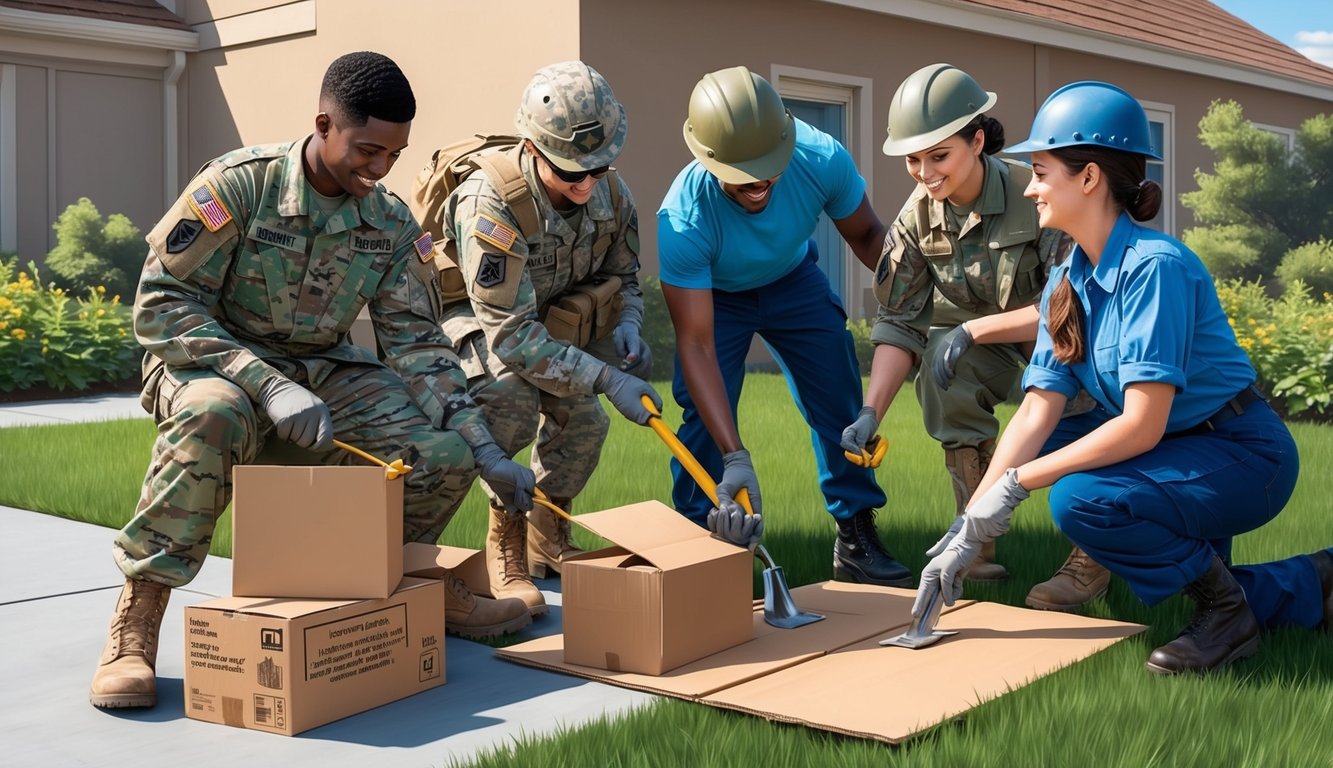
Core values encompass not only active-duty soldiers but also reservists and civilian employees, creating a cohesive force characterized by shared principles and dedication to service.
Reserve and Active Duty Unity
Army values unite active and reserve components.
Regardless of your service status, you are expected to exemplify loyalty, duty, respect, selfless service, honor, integrity, and personal courage.
This collective foundation facilitates seamless collaboration during joint military operations.
Reservists often contribute valuable civilian skills that enhance active-duty capabilities.
You may encounter reservists applying their project management skills to military logistics, effectively merging civilian experience with military operations.
Training initiatives frequently bring together active and reserve components, fostering camaraderie and respect.
You’ll participate in exercises that encourage mutual understanding and reinforce shared values.
Department of the Army Civilians
As a civilian in the Department of the Army, your role is critical in supporting military missions.
Your adherence to Army values is just as essential as that of uniformed personnel.
These principles are embedded in civilian job expectations, performance appraisals, and professional development opportunities.
Your specialized knowledge provides continuity and expertise alongside military rotations.
The Army Civilian Corps Creed emphasizes your commitment to the Constitution and Army values, encouraging you to embody these principles in your daily work to contribute to the Army’s mission alongside military colleagues.
Resources and Further Learning
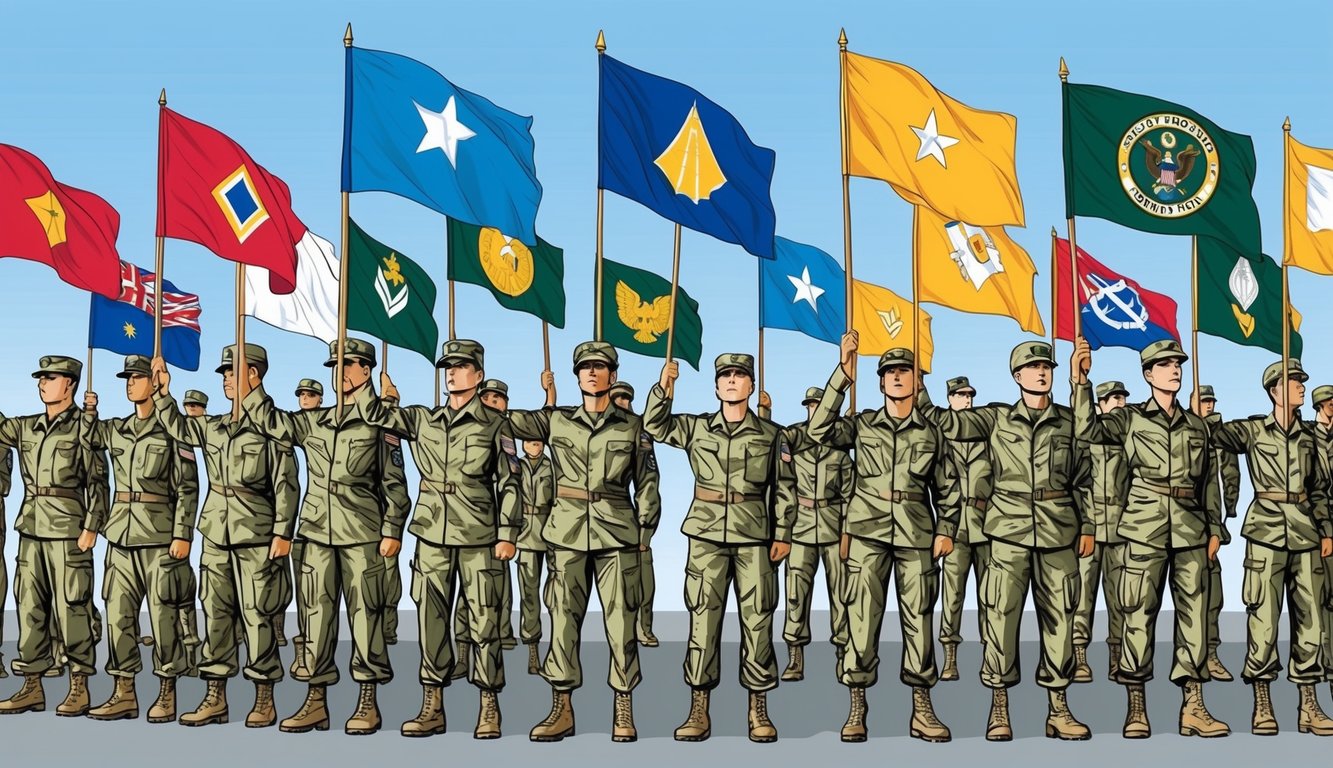
The U.S. Army provides various resources to aid in exploring and internalizing its core values.
These include official websites, educational programs, and literature.
Army Values Website
The official U.S. Army Values website serves as your primary resource for comprehensive information, including detailed descriptions of each core value: Loyalty, Duty, Respect, Selfless Service, Honor, Integrity, and Personal Courage.
The site shares real-life accounts of soldiers exemplifying these values, along with interactive modules and quizzes to assess your understanding.
Video testimonials from service members detailing personal experiences associated with Army values offer valuable perspectives on their real-world application.
CAPE and Educational Materials
The Center for the Army Profession and Ethic (CAPE) presents a wealth of educational resources.
You can access online courses, case studies, and discussion frameworks focused on Army values and ethics.
CAPE provides downloadable materials for individual study or group discussions, including lesson plans meant for leaders and instructors.
The Army’s Professional Military Education (PME) structure weaves values training throughout its curriculum, featuring courses tailored to various ranks and career stages.
CAPE additionally creates mobile applications and games to facilitate engaging learning about Army values.
Books and Publications
Numerous books investigate Army values and military ethics. “The Army Ethic” by Don M. Snider delves into the philosophical roots of Army values.
Though not exclusively about the Army, Simon Sinek’s “Start with Why” is frequently recommended for its insights on leadership and core values.
Army field manuals, such as FM 6-22 on Army Leadership, offer comprehensive guidelines for implementing values in leadership contexts.
Professional publications like “Military Review” consistently feature articles on Army values and ethics, providing contemporary perspectives and discussions within the military landscape.
Frequently Asked Questions
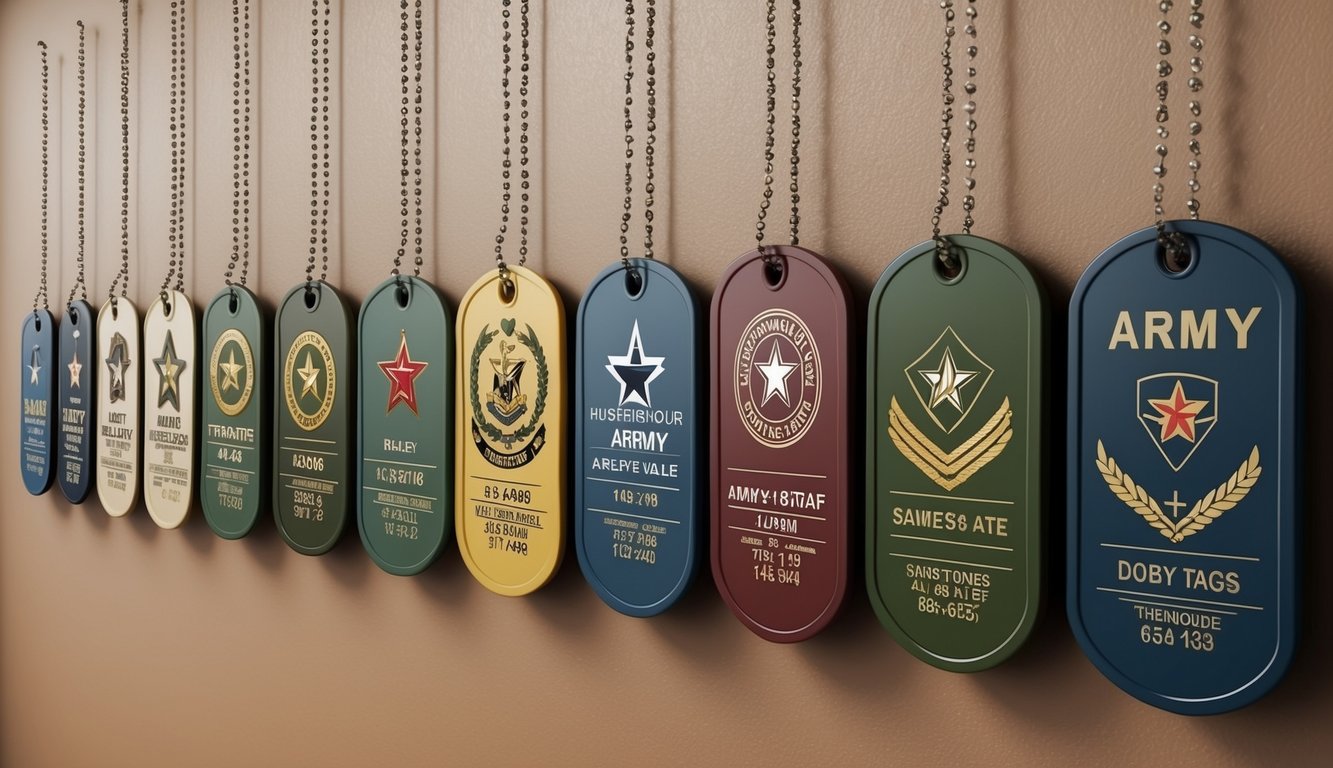
The Army values shape every aspect of a soldier’s life and conduct.
They provide essential guidance for daily operations, behavior, discipline, leadership, and decision-making across all levels.
Can you explain the significance of the Army values in daily operations?
Army values underpin everything soldiers engage with.
They guide choices, from mundane tasks to critical missions, reinforcing professionalism and ethical behavior in all situations.
You can observe loyalty through the support of unit goals and duty in the responsible execution of assigned tasks.
Respect manifests through courteous engagement with fellow soldiers and civilians alike.
How do the Army values guide the behavior of soldiers?
The Army values act as a moral compass for soldiers, laying out clear behavior expectations both on and off duty.
You are encouraged to embody these values in your life, beyond just during service hours.
For example, integrity is demonstrated by being truthful in all interactions, even when it’s uncomfortable.
Personal courage extends beyond the battlefield, demanding that you uphold what’s right in all circumstances.
What is the impact of the Army values on military discipline and cohesion?
Army values cultivate a unified sense of purpose and camaraderie.
They establish a common ethical structure for all soldiers, fostering discipline and teamwork within units.
When everyone commits to the same core values, it enhances trust and reliability among team members.
You can depend on fellow soldiers to act appropriately, even in challenging situations.
How are new recruits taught about the Army values during their training?
New recruits are introduced to Army values from the outset of basic training.
Throughout your training, you’ll explore these values through lectures, practical exercises, and real-world scenarios.
Drill sergeants and instructors model these values in their behavior and provide opportunities for you to practice them in various training settings.
In what ways are the Army values reflected in the Army’s creed?
The Soldier’s Creed integrates Army values directly, referencing duty, respect, selfless service, and honor.
It underscores the significance of these values in defining a soldier’s identity.
For instance, the phrase, “I am disciplined, physically and mentally tough” reflects personal courage, while, “I will always place the mission first” illustrates loyalty and selfless service.
How do Army values influence leadership and decision-making within the ranks?
Army leaders utilize these values as a guiding principle for their conduct and decisions.
Commanders incorporate these values by making choices that significantly affect their units.
Leaders are expected to exemplify Army values in all aspects of their behavior, which sets a standard for their subordinates and builds organizational trust.

